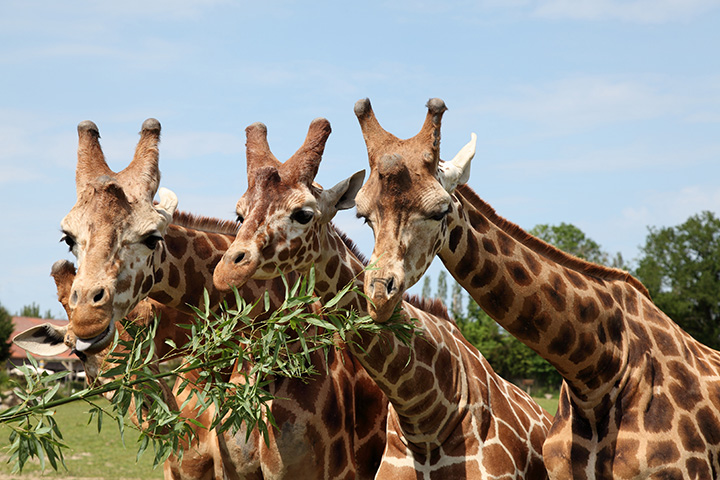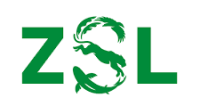Level 3 Diploma in Zookeeping
The Ofqual regulated Level 3 Diploma in Zookeeping is an ideal qualification for anyone looking to pursue a career working in zoos as a zookeeper, or in a voluntary capacity working with wildlife in captivity in zoos, safari parks, wildlife collections etc.
The Zookeeper qualification consists of theory and practical training.
The theory is studied online from home, at your own pace and with full tutor support. The practical training consists of 1-week training at either: Dartmoor Zoo, Blackpool Zoo, Colchester Zoo, Jimmy’s Farm or Wildlife Park. This is a fantastic opportunity to gain experiential learning with a variety of species at this prestigious award-winning Zoo. Blackpool Zoo is a 32-acre zoo located in Blackpool, Lancashire, England – this well-regarded zoo provides excellent, well established practical training and is home to over 1,350 animals from all over the world including lions, tigers, elephants, gorillas, zebras, flamingos, penguins, ostriches, owls, tortoises and more.
This Zookeeper qualification is open to anyone aged 16 or over. No prior qualifications are necessary. Course fees must be paid in full prior to attending the practical placement.
Next practical training dates: TBC
Practical dates may change depending on the current situation but this will not affect the students online learning
*You will have access to the course for 12 months only. You can purchase course extensions.
Course fees are fully inclusive of all course materials, tutoring, certification, practical training at Blackpool Zoo (1 week) PLUS Blackpool Zoo & Animal Jobs Direct branded jacket, sweatshirt and t.shirt.
We are able to accept Elcas Funding for this qualification
Animal Jobs Direct is has been granted Approved Learning Provider status in the Enhanced Learning Credit scheme .
Unit 1
Development of Zoos
Students will learn how the use of animals in captivity has developed historically and about the progress made from early zoos to modern zoos. Gain an understanding of the roles of modern zoos and how this has changed over the years, including the areas of entertainment, research, conservation and education. Understand how your role as a zookeeper assists with the roles of the modern zoo.
Unit 2
Animal Welfare and Ethics
Students will learn about the main animal needs of animals in captivity and the assessment of animal welfare in zoos including the management of breeding of animals in captivity. This unit also explores ethics within animal welfare and the ethical implications of keeping animals in a zoo.
Unit 3
Conservation in Zoos
Students will understand the different options of conservation available to zoos and why zoological collections are more suitable for different forms of conservation. This unit also explores how various breeding programmes work.
Unit 4
Zoo Design
Zoo design is always advancing as we have more materials and skills available as we gain more knowledge about the animals we keep. This unit discusses how our perceptions of the ideal animal enclosure have changed and what we feel are the most important things that an animal requires when kept in captivity. As one of the most common answers is ‘space’ – which is usually limited – how do we find creative solutions to get around this problem? It also covers other aspects required in zoo design such as the practicalities of public viewing and keeper safety. The general layout of the zoo is discussed including any preferences to a zoological or geographical style. The pros and cons of each are considered.
Students will gain an understanding of the main considerations for general zoo design and learn how to improve existing enclosures and change perceptions of animals’ enclosures in zoos.
Additionally, students will gain an understanding of the health and safety requirements for enclosure design.
Unit 5
Disease and Prevention
Students will learn how to report unusual behaviours and signs of illness promptly. Learn about zoonotic and animal diseases and how to prevent their spread. Explore how to source information about animal diets and nutrition and how to correctly store animal feeds.
Unit 6
Management of Animals in Zoos
Learn about the basic information that is required for the management of animals in a zoo. Gain an understanding of how to use observation skills effectively as a zookeeper and the importance of record-keeping in the management of animals in a zoo. This unit also explores the importance of teamwork in the management of animals in a zoo.
Unit 7
Enrichment and Training
This unit explores the value of environmental enrichment and stress reduction in a modern zoo environment and how replicating their natural habitat as well as possible, can significantly improve the welfare of animals in captivity.
The various types of enrichment are discussed in some detail as well as their definitions. The safety of zoo animals and the need to study the results are also explored. The usefulness of enrichment for more than just the animals is also discussed.
Learn about the development and uses of training and the different training methods. Learn how to identify and respond to signs of stress in zoo animals. Gain an understanding of behaviour and body language in zoo animals. The differences between positive and negative reinforcement is also discussed. Various sources of enrichment and training information are supplied as part of this unit.
Unit 8
Zoos and the Media
This unit explores the importance and value of the media to a modern zoo and why it is important for staff to be aware of the importance of what keepers say. It explains how keepers are ‘ambassadors’ for the zoo community in general and their collection in particular. The importance of keeping the zoos press office informed of all events and what the keeper’s role could be during media events is also covered. Gain an understanding of the use of keepers for presentations both within the zoo and externally at conferences and meetings.
Learn about the importance of both education and research within the modern zoo and how the keeper can assist with both departments. The position of both departments within the modern education system is also explored and how they are often closely connected to all the other departments within the zoo. (Zoos’ are one of the few facilities that assist with teaching right from pre-school through to PhD level). This unit also covers the information given out by the zoos in posters, signage and booklets.
Unit 9
Legislation and Zoological Collections
Gain knowledge about the legislations that are relevant to zoological collections in the UK and Europe. Learn about zoo relevant associations in the UK and Europe and analyse the impact on the role of the zookeeper. Gain an understanding of legislation in animal transportation in the UK and Europe. This unit also explores zookeeper and visitor interaction with animals and the limitations within this area.
Practical Placements 2023
Blackpool Zoo
May 15th – 19th & Sept 18th – 22nd
Jimmys'Farm and Wildlife Park
TBC
Colchester Zoo
March 20th – 24th
Dartmoor Zoo
June 12th – 16th
The 1 week Practical Training programme at either: Dartmoor Zoo, Blackpool Zoo, Colchester Zoo, Jimmy’s Farm and Wildlife Park or West Midlands Safari Park includes both theoretical and practical learning with a focus on experiential learning. This training is tailored to each small group and includes:
- Enclosure design
- Primates – with a focus on enrichment and diets
- Education (including conservation and sustainability)
- Animal training/behaviour (specifically elephant and sea lion)
- Reptiles, Invertebrates – with a focus on specialist care
- Zoo administration: Including ZIMs, EEPs, Studbook management, Zoo licensing
- Research – this includes allocated time for a personal project
There will be direct contact with a number of key species including giraffes, penguins, prosimians, aardvarks, tapirs, sea lions.
Please note, accommodation and food are not included. Please click here for the hotel next to the zoo.
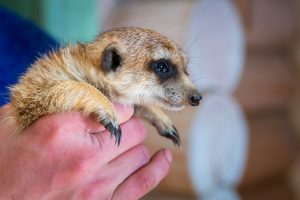
This zookeeper qualification has been designed in consultation with employers, to enhance career and employment prospects working in zoos and safari parks. There is a strong emphasis on the welfare of animals in captivity and the essential environmental enrichment requirements. This zookeeper qualification explores how to put animal welfare as a priority whilst allowing for clear management techniques and the public’s enjoyment of the zoo.
There are a wide range of wild animals housed in zoos, ranging from reptiles, big cats, and endangered species, including rhinos, primates, carnivores and many more. This course will give you a thorough basic knowledge and understanding of how to look after these amazing animals in captivity and how to conserve them for the future.
Learn about zoo animal care, history of zoos, animal behaviour, animal classification, captive environmental enrichment & stress reduction, animal welfare in zoos, wildlife conservation, record keeping, zoo legislation, zoo habitat design, nutrition & feeding animals in captivity, animal handling and more!
ZSL Fellowship
When you study a wildlife, zoology or conservation course with Animal Courses Direct, you
will be eligible to apply for ZSL Fellowship. Fellows get unlimited access for them and a
family guest to ZSL London and Whipsnade Zoos plus borrowing rights in the extensive ZSL
library of rare zoological texts. Enrol on your course and apply directly to ZSL for Fellowship.
*You will have access to the course for 12 months only. You can purchase course extensions.
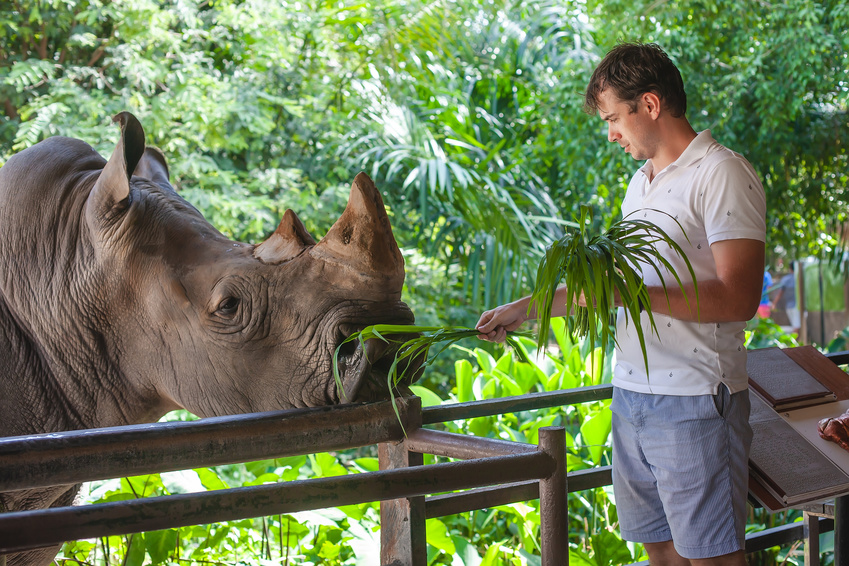
All wild animals in captive situations will, at some point, need to be handled, transported, treated and restrained. These situations will require special practices. Animals may require moving from one enclosure or collection to another, they may have escaped and need capturing or they may need routine or non-routine veterinary attention. It may also be a requirement to isolate animals, possibly for quarantine purposes and therefore animals may need to be handled, restrained and transported to an isolation enclosure at some point in their captive lives.
The methods of handling and restraint differ greatly depending on the species, especially its size and temperament. Safety of the handler and the animal are paramount at all times and the need for handling and/or restraint will always be considered before the act takes place to ensure it is a necessity.
It is important to note that handling and restraining wild animal species is a much more complex and stressful process as opposed to handling domestic companion animals. Wild animals are far more susceptible to stress and injury than domestic species, particularly during capture, handling, restraint and transportation. Even apparent simple procedures such as blood collection or clinical examination can significantly jeopardise the health and welfare of a wild animal. It is for this reason that the methods of handling and restraining wild animals need to be fully understood and appreciated prior to these methods occurring.
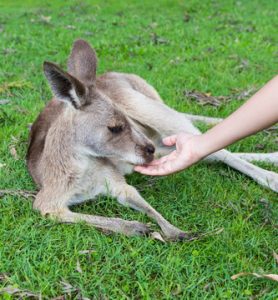
Please note, whilst we make every effort to run courses as advertised, we reserve the right to change the content, timing, dates or venue of our courses. We reserve the right to cancel a course up to the date of the course if insufficient bookings have been received. In all cases, students who had registered to attend a cancelled course will be given the option of a refund or escheduling to a future course date but Animal Courses Direct Ltd disclaims any further liability.
Recent Zookeeper Qualification Reviews:
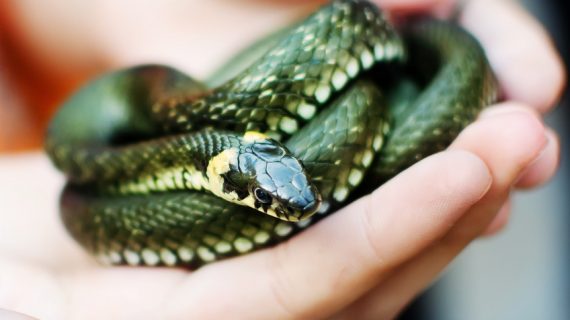
Emma Hearn
I thoroughly enjoyed the weeks hands on experience at Blackpool Zoo, especially when we were designing, creating and testing enrichment activities for a zoo animal of our choice. The staff are exceptional at being informative and encouraging. Since starting the course I have obtained two volunteering positions one in a zoo, another in a rescue centre and I am already looking into where to go next with my studies.” Kim Brett
“I have loved my time learning with Animal Courses Direct, the tutors are easy to contact and you learn so much. I am currently studying the Level 3 Diploma in Zookeeping and I’m also studying zoo animal nutrition. I’ve recently just had my zoo keeping placement at Blackpool Zoo where I got to train as a zookeeper for a week. It was amazing, I learnt so much and got up close and personal with the animals. It’s made me want to be a zookeeper even more. One of the best things about studying with Animal Courses Direct is you can do it in your own time and you can study as many courses as you like. You can fit your studies around your lifestyle. I’ve told so many friends and family about how amazing they are that I have currently got friends who are looking at enrolling on the course.
We offer a selection of accredited and employer recognised courses specifically designed for careers working with animals.
If you have any questions about our courses, please contact us.
We’ve assisted many people to achieve their goal to work with animals. Read more about our 5-star reviews and student success stories.
Gain relevant training to achieve your goal to work with animals.


